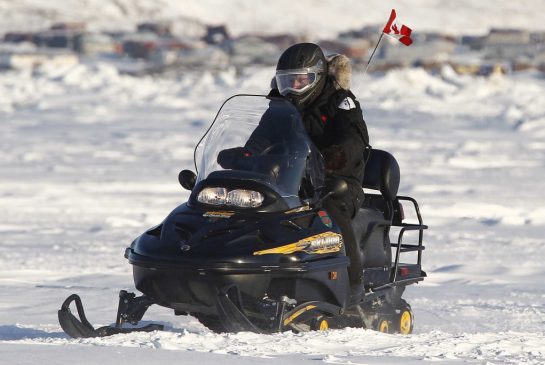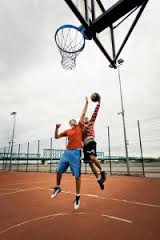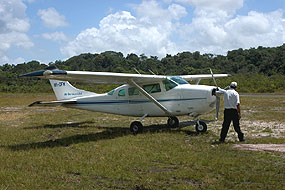| live have got play fly go snow |
a)

b)

Dan in Alaska. It a lot in Alaska.
c)

d)

Dan to school on a skidoo. At weekends he basketball.
e) f)
f)
His dad a small plane. He to Anchorage every week.
2. Complete the sentences. Use the right present simple form of the word in the box.
b) Mr Johnson his car every week.
c) My parents' alarm clock at 6.30.
d) My sister and I going to the gym.
e) Mum to work four days a week.
f) We tennis and basketball at school.
g) Jack a shower in the evening.
h) Mel always her homework.
3. Complete the text about Dan and his family. Use the negative form. Use don't or doesn't with the verbs.
Dan (enjoy) the winter in Alaska. He (like) the short days and the long nights. It (snow) every day, but it's always very cold. The summer is different. It's never really dark, so Dan and his brother (go) to bed before twelve o'clock at night. Their parents (care) because the boys are on holiday. In the summer Dan (go) to school for three months!
4. Look for a mistake in each sentence. Correct the mistake!
a) I'm not like this pizza - it's awful!
b) After breakfast, Paul's get ready for school.
c) They don't often playing computer games.
d) We doesn't go to school at the weekend.
e) Adam not wears trainers.
f) Eva catch the bus in Smith Street.
g) People never don't swim here because the water isn't clean.
5. Reading: Antarctica - Read the text. Then read the sentences and choose one of the answers: true, false or not in the text!
To the south of South America, there's a cold and empty continent: Antarctica. There aren't any roads or towns, but there are several research stations. About 4,000 scientists from all over the world work there for short periods. No one lives in Antarctica all the time - only millions of penguins!
The weather is always cold and windy. In June (Antarctica's winter) the temperature at the Vostock Research Station is -60C, and it's dark all the time. In January (Antarctica's summer) the temperature is about -18C, and it's light all the time.
Antarctica has got mountains, volcanoes and fantastic wildlife. Every year thousands of tourists visit the continent. Some people are worried. They don't want a lot of tourists in this wild and beautiful place.
a) Antarctica is in South America.
b) There are roads between the research stations.
c) Scientists study the penguins in Antarctica.
d) It never rains in Antarctica, but it snows a lot.
e) When it's winter in Europe, it's summer in Antarctica.
f) People at the research stations don't work in June, because it's -60C.
g) It's completely dark at night in the Antarctic summer.
h) The Antarctic is wild and beautiful, but tourists don't want to go there.
6. Complete the questions and write the short answers!
These people work at a research station in the Antarctic. Here are the languages they speak.
| | English | Spanish | French | Arabic | Italian |
| Marie | yes | no | yes | yes | no |
| Luis | yes | yes | no | no | yes |
| Adriana | yes | no | yes | no | yes |
| Jamal | yes | no | yes | yes | no |
a) Luis speak English? Yes, .
b) Adriana speak Spanish? No, .
c) Luis and Adriana speak Arabic? .
d) Jamal speak Spanish and Italian? .
e) Marie speak Arabic? .
f) they all speak English? .
g) What about you? you speak English?
7. Write the questions. Then choose one of the answers!
a) you / enjoy / cooking?
A: ?
B:
b) you / live / in a big city?
A: ?
B:
c) your maths teacher / wear / glasses?
A: ?
B:
d) you and your friends / play / football?
A: ?
B:
e) Where / your best friend / live?
A: ?
B:
f) How often / you / tidy your room?
A: ?
B:
8a. Put the frequency adverbs in the right order. Start with the opposite of never.
